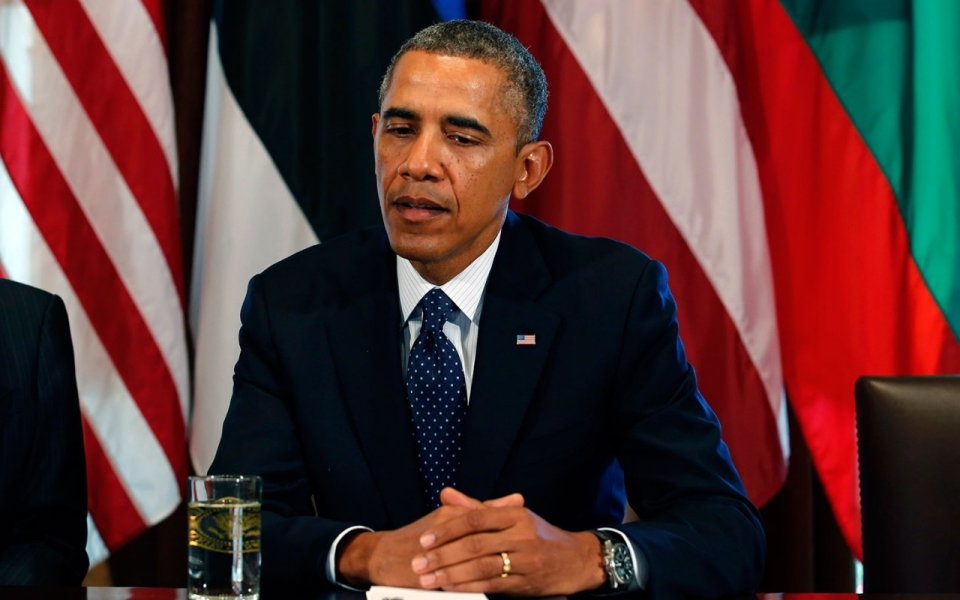
President Barack Obama announced Saturday that he has decided to take military action against Syria's Assad regime over alleged chemical weapons attacks, but will seek congressional approval before implementing that decision. The decision to seek legislative approval portends a significant delay in military action that many had expected might come as early as this weekend.
U.N. chemical weapons inspectors, who had been in Syria investigating an alleged poison gas attack blamed for hundreds of deaths, left the country Saturday as Washington tightened its focus on the country.
The departure of the U.N. experts has heightened expectations of a possible military strike against Syrian government forces in retaliation for the suspected attack, as President Barack Obama prepared to deliver a statement at the White House and senior administration officials scheduled conference-call briefings with members of Congress from both parties this weekend.
With the U.N. experts trying to determine what happened in the alleged Aug. 21 gas attack, Secretary of State John Kerry said Friday that the U.N. investigation would have no bearing on Obama's decision whether to strike Syria.
A U.S. intelligence report released during Kerry's speech said at least 1,429 people, including 426 children, were killed by Syrian President Bashar al-Assad’s government in the poison gas attack just outside of Damascus.
The congressional conference calls, which were set to include Kerry, Defense Secretary Chuck Hagel and National Security Adviser Susan Rice, were intended to make good on the Obama administration's desire to consult Congress over any possible military action.
U.N. officials have said it may take weeks to analyze the samples gathered by the inspectors and to present conclusions. U.N. spokesperson Martin Nesirky said the inspectors would also return to the country to investigate several other alleged chemical weapons attacks that have purportedly taken place during the country's two-and-a-half year uprising against Assad.
Meanwhile, Russia -- one of Assad's closest allies – on Saturday redoubled its opposition to a military action against Syria and reiterated its skepticism about Assad's forces using chemical weapons.
"I am convinced that it [the chemical attack] is nothing more than a provocation by those who want to drag other countries into the Syrian conflict," Russian President Vladimir Putin said. He urged the Obama administration to refrain from missile strikes.
Putin's remarks came after lawmakers in the United Kingdom, usually a dependable U.S. wartime ally, voted Thursday against joining a military operation.
While that move has left the Obama administration scrambling to shore up allies should it choose to conduct a strike, it believes it can at least count on a willing partner in France.
French Prime Minister Francois Hollande told the French daily Le Monde on Friday that he would support the U.S. in its fight against Assad, even without British support.
Also Saturday, a spokesperson from Iran's national security committee said an Iranian parliamentary delegation has left Tehran for Syria. The group is reportedly scheduled to meet with Syrian officials to find a way out of the current situation in the country. The spokesperson said the delegation is carrying a message of friendship and condemning any foreign intervention in Syria, and is also condemning any use of chemical weapons. The group is expected to return to Tehran Wednesday.
The U.N. inspection team, which has returned to Europe, offered no timeline for when its analysis would be completed.
"The samples that have been collected will be taken to be analyzed in designated laboratories, and the intention of course is to expedite the analysis of that sampling that's been taken," Nesirky said.
"This is not an electoral process, where you have exit polls and preliminary results," he said. "This is a scientific process. The only result that counts is the result of the analysis in laboratories and the analysis of the evidence that's been collected through witness statements and so on."
Two diplomats told Reuters that U.N. Secretary-General Ban Ki-moon has said that analysis of the samples could take up to two weeks.
Al Jazeera and wire services






Error
Sorry, your comment was not saved due to a technical problem. Please try again later or using a different browser.